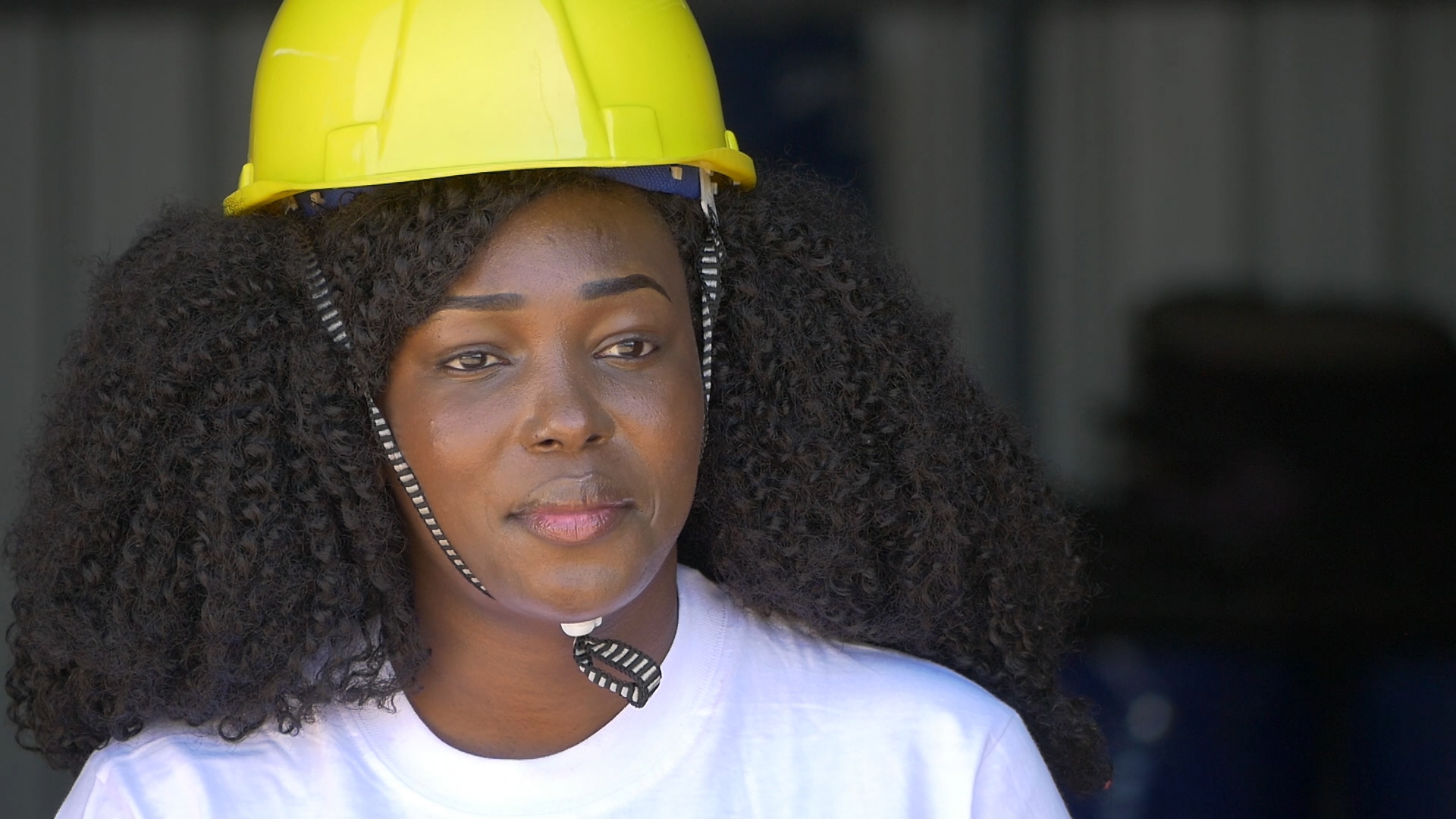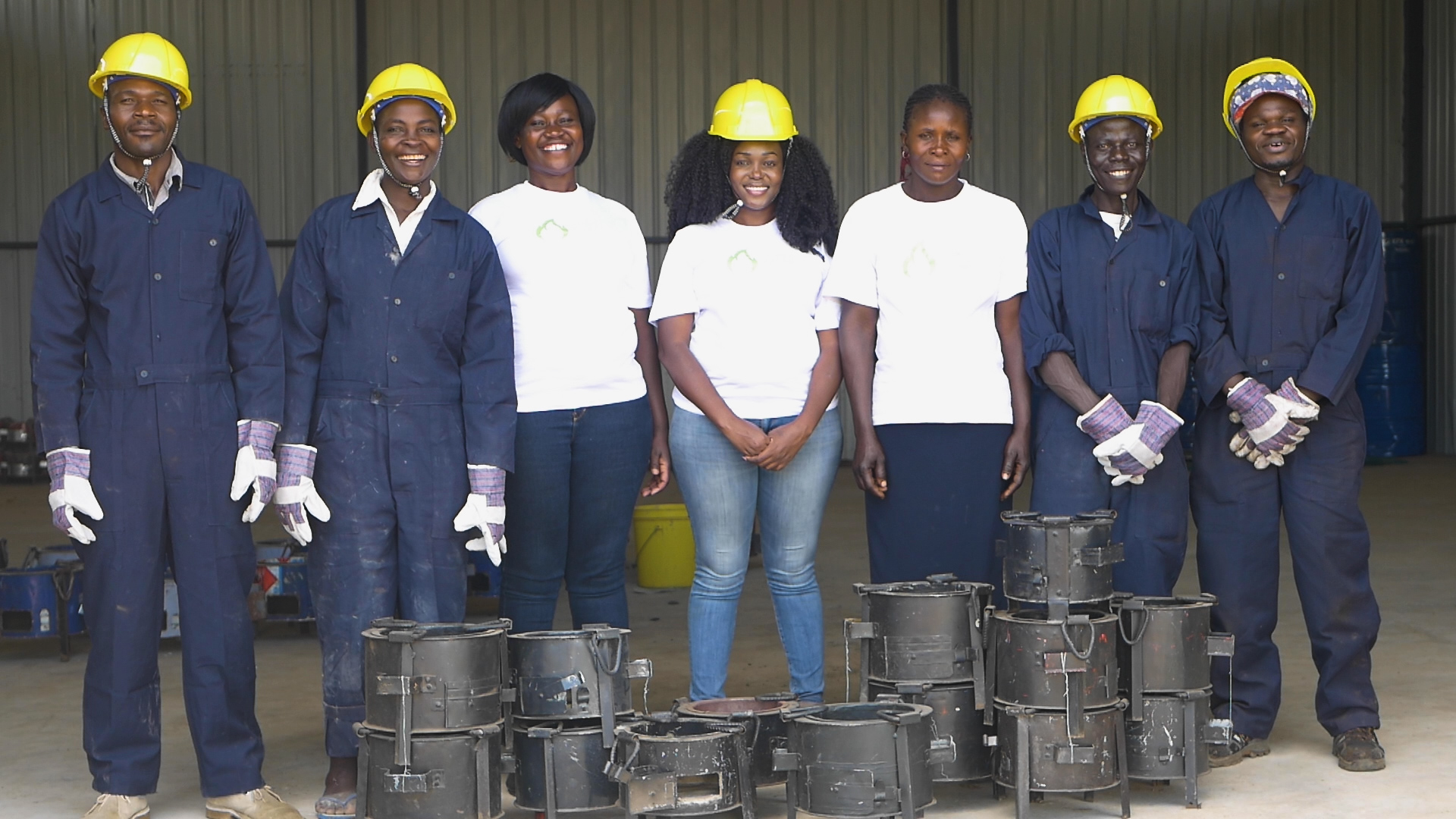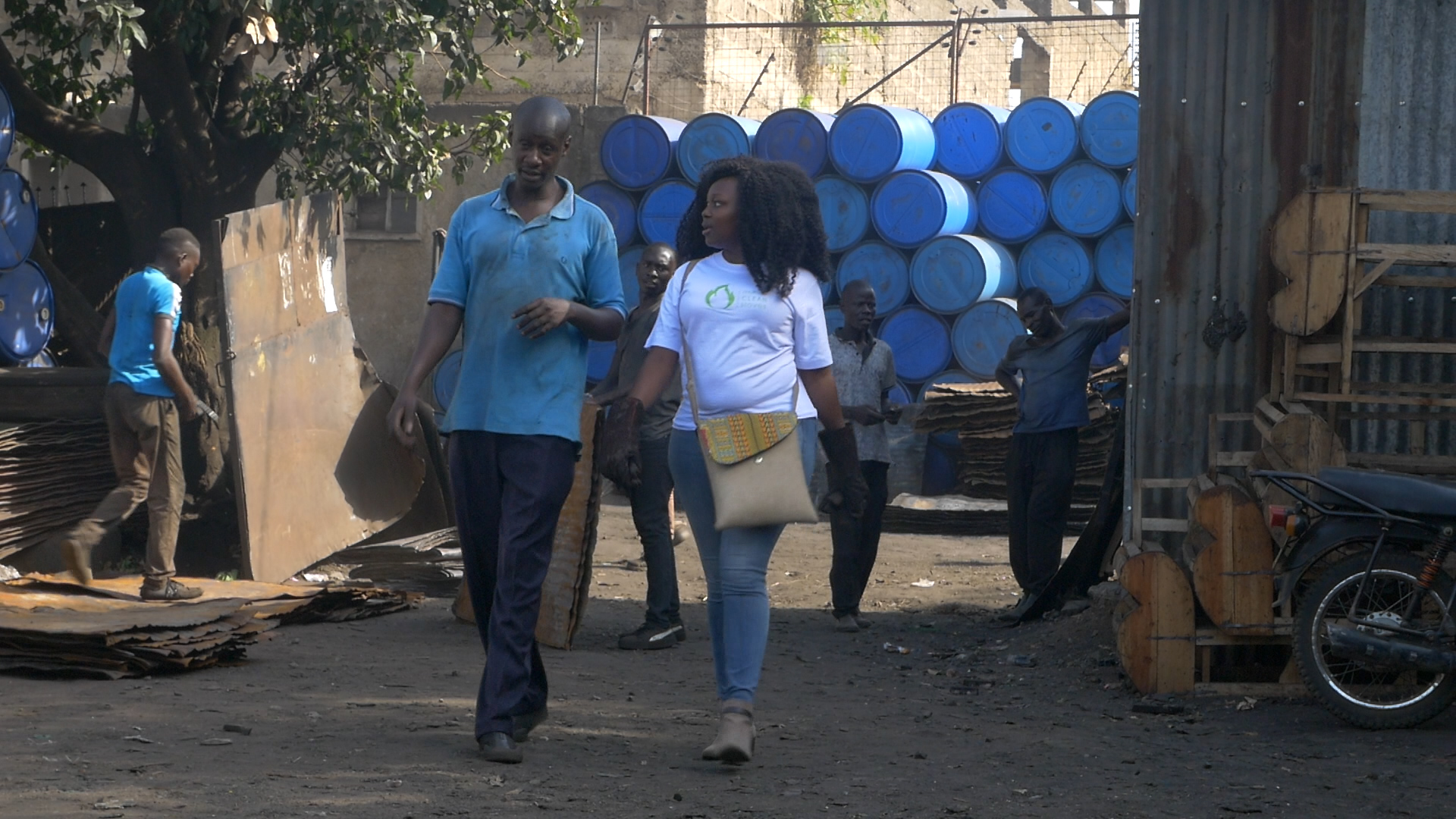Why COVID-19 is Leading to Increased Cookstoves Sales for one Kenyan Manufacturing Company
Charlot Magayi, founder of Mukuru Clean Stoves (MCS), was motivated to start her own cookstove manufacturing company after seeing first-hand the negative health and financial impacts of cooking with inefficient stoves and fuels. In Kenya’s Mukuru County, the third-largest slum in Kenya, she recognized that one of the most pressing challenges families were facing was household air pollution from cooking over open fires. As a result, Magayi began building and selling stoves in 2015 and, just two years later, was able to expand her company into Western Kenya to reach more rural and lower-income households. In a recent interview, Magayi shared with Clean Cooking Alliance (CCA) Senior Associate for Demand and Behavior Change, Hannah Chi, how the COVID-19 pandemic has increased demand for clean cooking in Kenya, resulting in increased sales of MCS stoves.
Hannah Chi (HC): What kinds of changes have you had to implement in your business model due to COVID-19?
Charlot Magayi (CM): One of the changes we have had to make is the way that we produce our stoves. Prior to COVID-19, our engineers worked together in our factory in Siaya County in a large communal space. However, to minimize contact, we have since divided our factory into small, separate stations and have staggered employee shifts so that only two people are working at each station together. These changes have slowed down our production rate. So, although we were working on a scale-up project prior to the pandemic, COVID-19 impacted the pace and progress of these plans.
This said, the greatest impact of the pandemic has been on how we sell our products. Previously, our most prominent form of advertising was through market demonstrations where our sales agents and field officers educated people on how to use our stoves, as well as on the benefits of using them. However, due to social distancing measures that have been enforced as a result of COVID-19, we have not been able to organize any market demonstrations or train sales agents.
HC: Since MCS is not able to conduct demonstrations right now, how has the company been able to market its products during this time?
CM: We have started to market our stoves through radio advertisements, and while this has allowed us to reach a wider audience, it has also presented a few new challenges. First, radio ads are more expensive than setting up a tent for a community demonstration, so we have had to increase our marketing budget. Second, we have learned that radio ads don’t give us the same ability to educate people comprehensively on how the cookstoves work, the benefits of using them, and why using our stoves are better than cooking over open fires. And finally, many of the regions where these ads are being broadcasted are areas where we have yet to train field agents. So, people are hearing and learning about our stoves, but then are unable to access them.
HC: Despite these challenges, have you seen steady sales numbers for MCS stoves?
CM: Yes. In fact, we have seen the highest numbers as of recently since the lockdown began in Kenya. We realized that before the pandemic, men, who are the primary breadwinners for most families, were not always home when meals were being cooked or when MCS field agents did door-to-door marketing. Men are usually the decision makers when it comes to purchases for households in rural areas. So, when presented with the option of investing in a more efficient cookstove, they previously didn’t see the value because the reality of cooking over an open fire was not one they were experiencing as frequently as their wives and children. However, once the stay-at-home orders were enforced in Kenya, many men saw the smoke and the way it impacted their families and they couldn’t look away anymore. So now, they are much more focused on ensuring their families have better cooking equipment and ensuring their families are healthy.
The COVID-19 virus is another factor that we think is impacting demand. As the hypothesis that pre-existing respiratory illnesses can increase the severity of COVID-19 symptoms has spread, people are making the connections between being exposed to smoke from everyday cooking and the health and safety of their families.
HC: Would you say that consumers you are marketing to were already aware of the connection between cooking with inefficient stoves and increased respiratory illnesses or was that something you had to communicate to them?
CM: I would say that, for the most part, a lot of people do not associate the illnesses they face with their cooking methods. This is especially true for lower-income households that don’t have access to certain levels of education. When we first make market entry, educating the community on the impacts of cooking over open fires is one of our first priorities. It’s very important to us to communicate with our customers and explain to them why they and their children are coughing and getting sick.
HC: Since the pandemic began, have your customers reported back to you on the benefits they are seeing from using MCS stoves?
CM: We have received a lot of feedback from customers explaining that they like using our stoves because they are no longer exposed to smoke from cooking. In fact, COVID-19, in some ways, has helped us to really address stove stacking. Prior to the pandemic, people would buy a clean cookstove but still cook on open fires and wake up the next morning coughing. But due to the pandemic, no one wants to be exposed to smoke at all anymore. Now, many households are exclusively using MCS stoves because they can cook inside with everyone in the house and without any smoke. And when they wake up in the morning, they don’t feel like their health is in danger.
Our customers have also been highlighting the financial savings they are seeing, especially since COVID-19 has led to so many business closures and job losses. On average, MCS stoves help families save up to USD $2 per month and affordability is a huge deciding factor when investing in any new technology. At the end of the day, what usually ends up convincing people to purchase one of our stoves is the savings they will see once they stop spending so much money on fuel.
HC: Switching to the operations side of MCS, has your manufacturing and distribution been able to keep up with increased demand?
CM: The pandemic has been both good and bad for our business: good in the sense that we’ve been able to satisfy demand in regions where we have already made a name for ourselves, but bad in the sense that we have seen many more challenges in getting our stoves to other regions, even if the demand does exist. Prior to the pandemic, we were working on building a second factory to be able to produce more stoves, hire and train more people, and ultimately reach more households. But, of course, COVID-19 has brought with it many more challenges in following through with this. For right now, we have halted these plans until closer to the end of 2021.
HC: How do you plan on continuing growth, especially during these uncertain times? What kind of support or aid would you want to see from donors and investors within the sector?
CM: I fear that in a post-COVID-19 world, concern over air pollution and respiratory illnesses won’t be as important or prominent. Just because we are experiencing a growth in sales right now does not mean we have reached a certain check point that can’t be undone. In these unusual times, it’s easy to think that people fully understand the dangers of cooking over open fires, but I think the level of panic we are seeing around the world right now is skewing our perception of consumer knowledge. I hope clean cooking enterprises remember that the most important marketing technique is education and awareness creation, which is also where I believe donors and investors can have a huge impact. This is not a time to stop talking about household air pollution; this is the time to increase the volume on those conversations. We need people to understand why they need these stoves and why they should be using them. So, if donors want to know how to help, I believe investing in awareness-raising and demand creation is the best kind of help right now.



